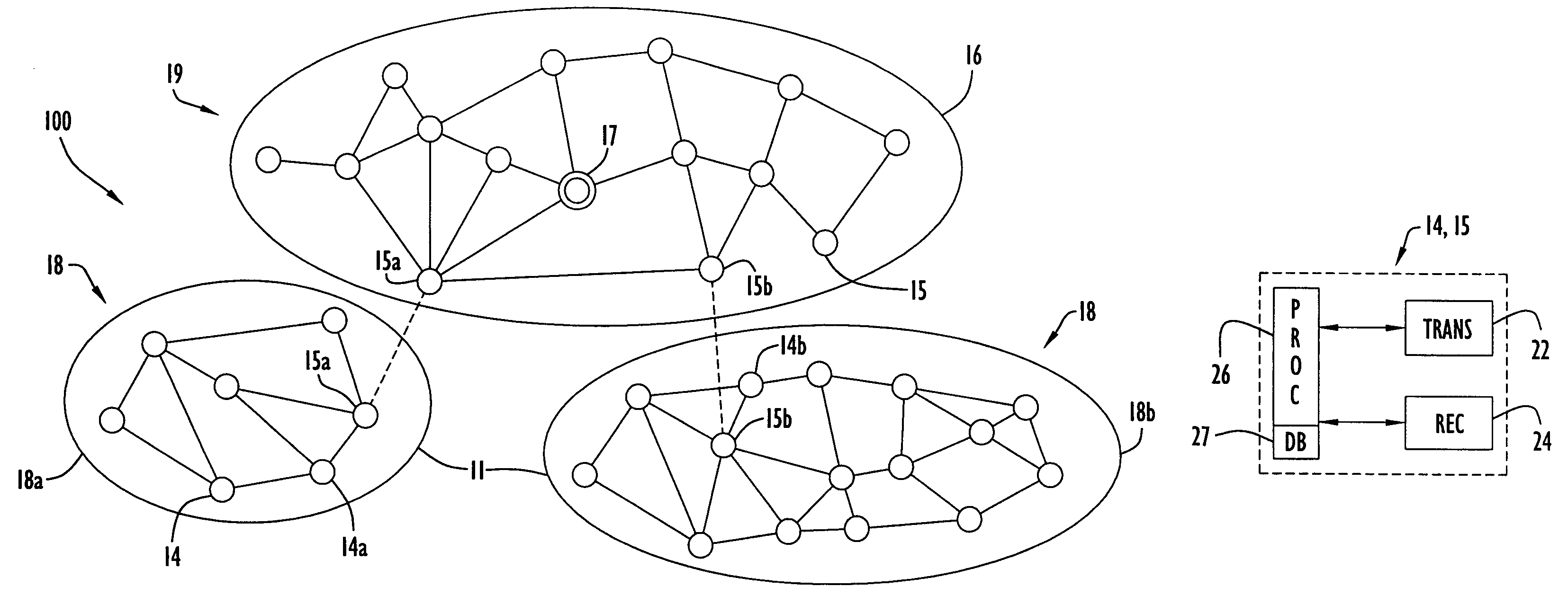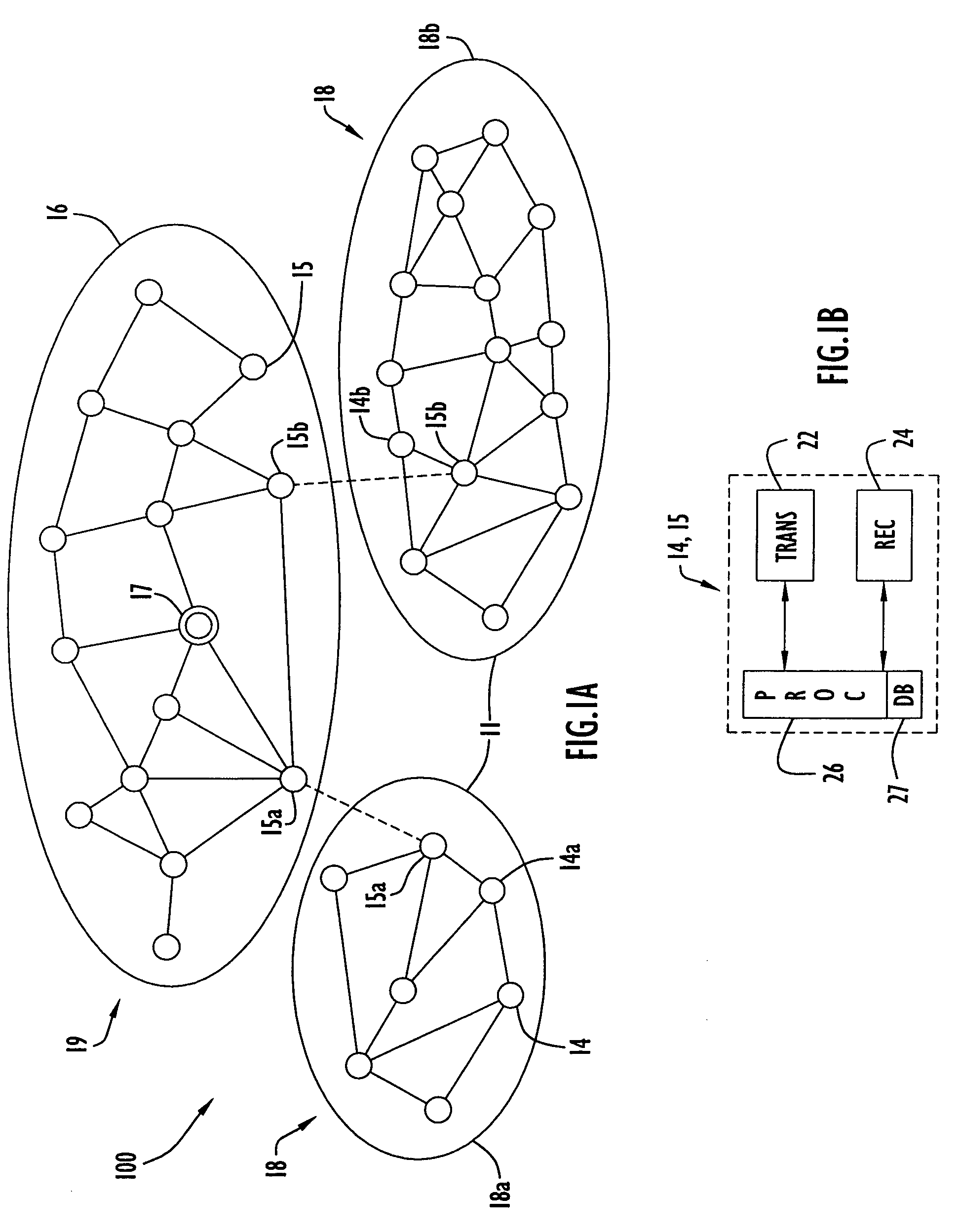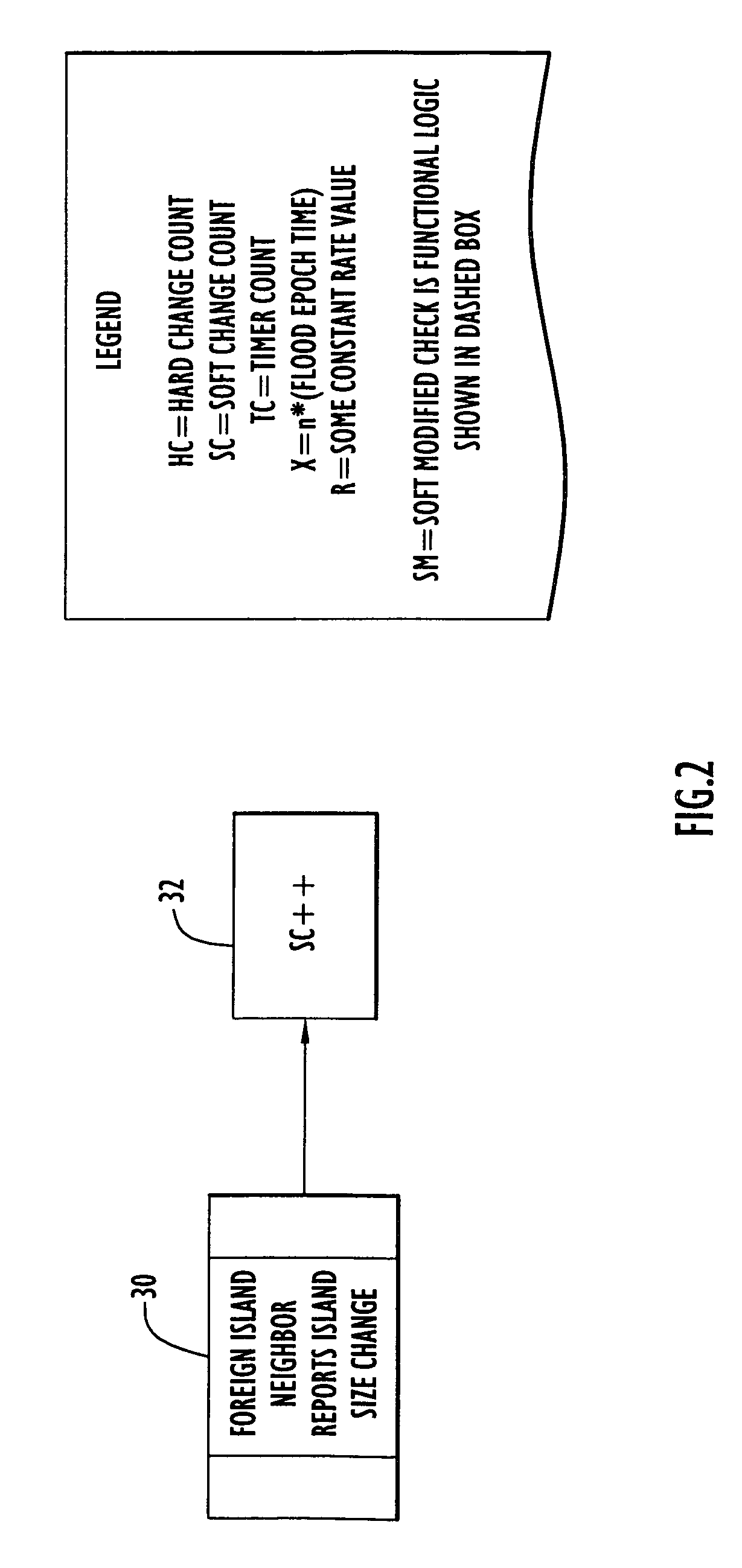Method and system for efficient network formation and maintenance of node routing databases in a mobile ad-hoc network
a mobile ad-hoc network and database technology, applied in the field of wireless communication systems, can solve the problems of low network efficiency, channel bandwidth is very limited, and group member nodes do not have direct use of this information, so as to reduce overhead traffic
- Summary
- Abstract
- Description
- Claims
- Application Information
AI Technical Summary
Benefits of technology
Problems solved by technology
Method used
Image
Examples
Embodiment Construction
[0023]An exemplary network architecture that may be employed by the present invention is a multi-hop wireless ad-hoc network. This type of network does not include an infrastructure (e.g., there is no base station as in a cellular network, where a single-hop environment of a cellular network becomes a special case) and may be utilized in a hostile network environment (e.g., a tactical battlefield, etc.) with unfriendly jamming.
[0024]An exemplary network that may be employed by the present invention is illustrated in FIG. 1A. Specifically, a wireless network 100 includes a plurality of islands 18, 19, where the network architecture is divided into two types of tiers. Each island 18 is in the form of a flat multi-hop network and includes corresponding island member nodes 14 with one of those member nodes designated as an island head node 15. This type of island arrangement forms a lower tier 11 of network 100 and facilitates communication within an island between the island head and m...
PUM
 Login to View More
Login to View More Abstract
Description
Claims
Application Information
 Login to View More
Login to View More - R&D
- Intellectual Property
- Life Sciences
- Materials
- Tech Scout
- Unparalleled Data Quality
- Higher Quality Content
- 60% Fewer Hallucinations
Browse by: Latest US Patents, China's latest patents, Technical Efficacy Thesaurus, Application Domain, Technology Topic, Popular Technical Reports.
© 2025 PatSnap. All rights reserved.Legal|Privacy policy|Modern Slavery Act Transparency Statement|Sitemap|About US| Contact US: help@patsnap.com



